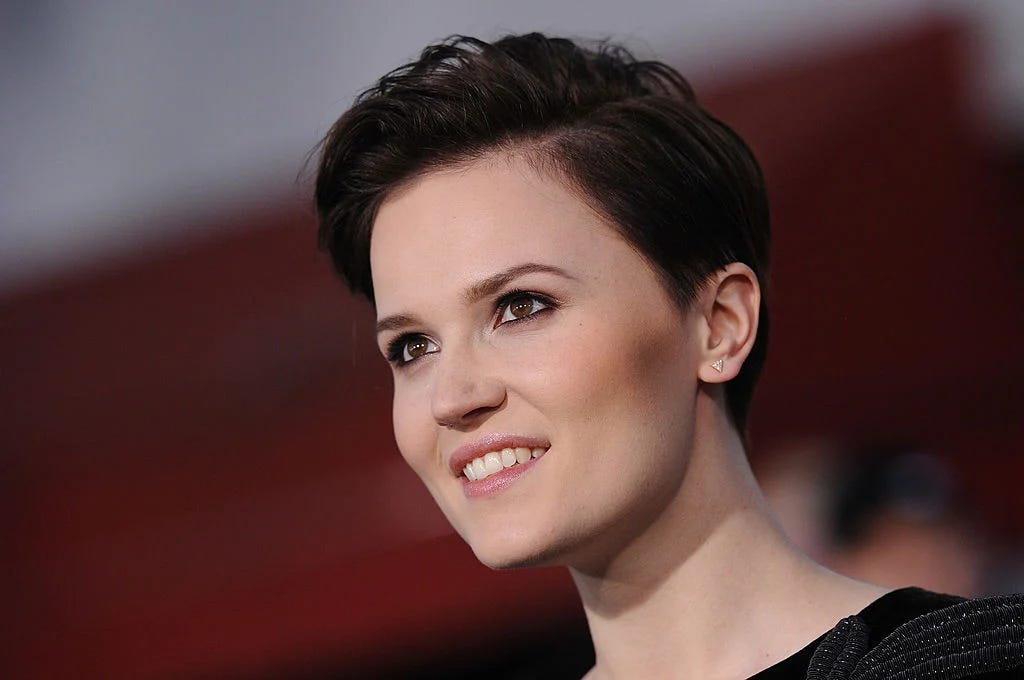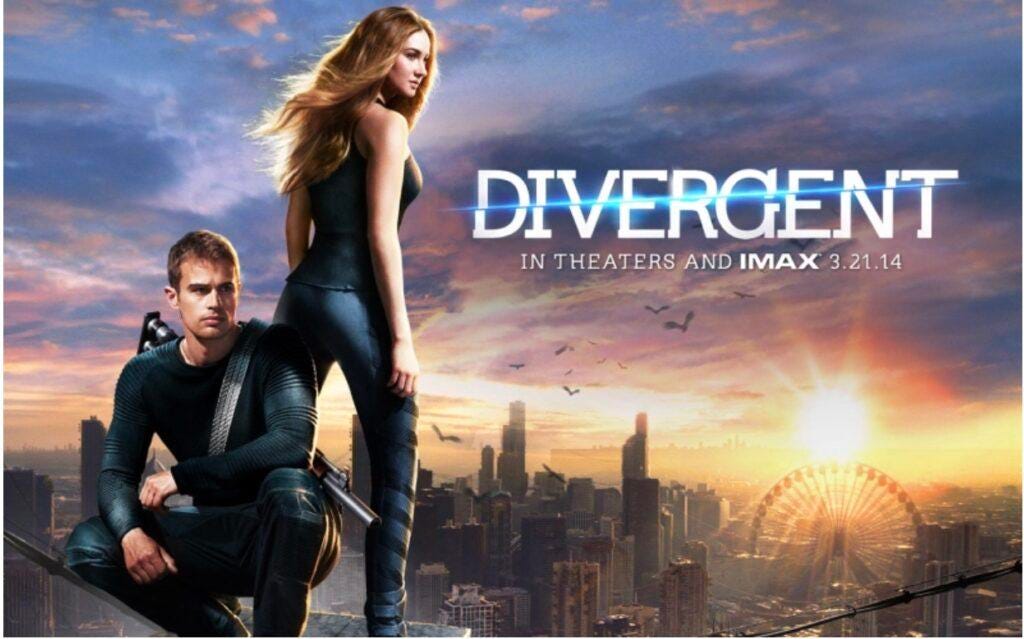Veronica Roth and the Divergent Fallout: What Happens When Your Franchise Fails Before the Final Film
She got the dream deal at 21. A bestseller. A blockbuster. And then the system walked away.
The High-Earning Author Series is an ongoing investigation into how today’s most successful authors are really making their money. From royalties and rights deals to adaptations, speaking gigs, and side businesses, we’re pulling apart the numbers—and the narratives—to reveal what it takes to reach the top. This isn’t about glamour. It’s about strategy, scale, and what authors give up (or guard) to earn big.
In 2011, Veronica Roth was twenty-two years old. She had just graduated from Northwestern University with a creative writing degree and signed a six-figure publishing deal for her debut novel, Divergent. Before the book even hit shelves, Summit Entertainment—fresh from the success of Twilight—had optioned the film rights.
By the following year, Divergent was a New York Times #1 bestseller, Roth was a household name in YA fiction, and Hollywood was gearing up for another dystopian franchise. To the outside world, it looked like the ultimate publishing fantasy: a young writer catapulted into fame, fortune, and cultural relevance almost overnight.
But the real story, like most in this series, is about what happens next.
Because just a few years later, the final Divergent film would be cancelled. Roth would learn about it from the press. And the story she built, the one she owned in prose, would be left unfinished on screen.
The Rise of Divergent
Roth’s debut novel, released in 2011, arrived at the peak of the YA dystopia boom. The Hunger Games had just made the leap to film. Publishers were hungry for high-concept trilogies with strong female leads, and Roth’s story, set in a faction-divided society where conformity was survival, hit every note.
Divergent sold 6.7 million copies in its first two years. The trilogy would eventually exceed 35 million copies worldwide, bolstered by strong digital sales and the release of companion novellas. In one 12-month period alone (June 2012–June 2013), Roth reportedly earned $17 million in royalties, placing her among the top-earning authors in the world.
Summit moved fast. The first film, starring Shailene Woodley and Theo James, was released in 2014 and grossed $288 million worldwide. The second, Insurgent, fared even better at the box office, crossing $297 million.
At 26, Roth had achieved what many authors never do in a lifetime: commercial dominance across both books and screen. And then it all started to unravel.
The Tipping Point
The third book in the trilogy, Allegiant, was the most controversial of Roth’s career. In a narrative choice that split her readership, she killed off her protagonist, Tris Prior, in the final pages—a move that some called brave, others unforgivable. Though the book sold well, the backlash was swift. Long-time fans accused Roth of betrayal. Social media turned volatile.
Hollywood, already following the Hunger Games model, decided to split Allegiant into two films. The first was released in 2016 and flopped. It earned $179 million globally against a reported $110 million budget, making it the lowest-grossing instalment of the series.
The final film, Ascendant, was quietly shelved. Roth learned of the cancellation from the press.
No ending. No closure. No warning.
It was a startling reminder that once a story leaves the author’s hands, it belongs to the machine.
The Cost of Early Success
Roth’s initial deal was lucrative. Her franchise was profitable. But what happens when you peak at 25?
For years, Roth carried the weight of both the trilogy’s commercial success and its cultural burnout. She had been celebrated, then criticised, then sidelined. The unfinished film series hung like an ellipsis at the end of a sentence that once roared.
In interviews, Roth remained composed. She admitted the backlash hurt. She acknowledged that she was young when she wrote the ending—and that she stood by it.
But something had shifted.
Rebuilding the Voice
In 2020, Roth released Chosen Ones, her first novel for adults. Gone were the YA tropes and explosive marketing. Instead, the book offered a quieter meditation on what happens to chosen ones after the prophecy ends—an apt metaphor for Roth herself.
Her next novel, Poster Girl (2022), took on surveillance states and personal accountability. The world-building remained dystopian, but the tone was more restrained, more literary. She was no longer writing to sustain a franchise. She was writing to explore what came next.
There were no film tie-ins. No midnight releases. No Hunger Games comparisons.
And that was the point.
What the Numbers Say
Book Sales: 35+ million
Royalties (2012–2013): $17 million
Film Franchise Gross: $743 million across three films
Net Worth (2023 estimate): $40 million
Unfinished Films: 1
Years of cultural silence before returning to fiction: 4
The math is impressive. But so is the fallout.
What Did Roth Actually Earn From the Divergent Film Rights?
Veronica Roth’s exact deal with Summit Entertainment was never made public, but based on industry standards, comparable YA franchises, and the context of her debut, we can estimate the numbers.
At the time, Summit was riding high from the Twilight franchise and aggressively acquiring high-concept YA. Roth was 21, unpublished but already signed to a major publisher, and Divergent had all the hallmarks of a breakout.
Comparable deals suggest she likely sold the film rights for somewhere between $500,000 and $1 million upfront. As a debut author, she probably received:
A flat fee for film rights to the trilogy
Minimal creative control
Possibly performance bonuses if sequels were greenlit
Unlikely to have secured backend profit participation
By selling rather than licensing, Roth gave up the power to shape, halt, or revise what came next.
She made a million. But lost the final act.
It’s the deal most debut authors would take. And the caution most legacy-minded authors now try to avoid.
Lessons in Ownership
Unlike some of her peers, Roth sold her film rights outright rather than licensing them—a common practice for debut authors. It meant a large upfront payment, but little creative control. When the studio cancelled Ascendant, there was no consultation. No power to intervene. The brand collapsed under its own weight, and Roth was not in the room when it happened.
And yet, she’s still here. Still writing. Still publishing.
Just… on her own terms.
The Bastardly Takeaway
Veronica Roth got everything most writers are told to want: the book deal, the film franchise, the money, the millions of readers.
But early success is not the same as long-term power. And when your story becomes a product, it can be discontinued, regardless of how it ends on the page.
What Roth teaches us is this: survival isn’t just about writing the hit. It’s about what you do after the hit stops selling.
She no longer has a film deal. She no longer dominates bestseller lists.
But she has something far rarer: authorship with intention.
And maybe, in the quiet after the fire, that’s where real legacy begins.
H. J. x
Read more articles in the High-Earning Author Series here —> https://hjsmithwilliams.substack.com/t/high-earning-author-series
New to me and my writing?
I’m H. J. Smith-Williams: novelist, screenwriter (in progress), and founder of the £1.5M Project—a year-long experiment to see how far words, wit, and stubborn execution can go.
You can expect fiction, industry breakdowns, unapologetic ambition, and the occasional author confession.
If that sounds like your kind of chaos, you’re in the right place.
Find all the writer’s tools & resources below





